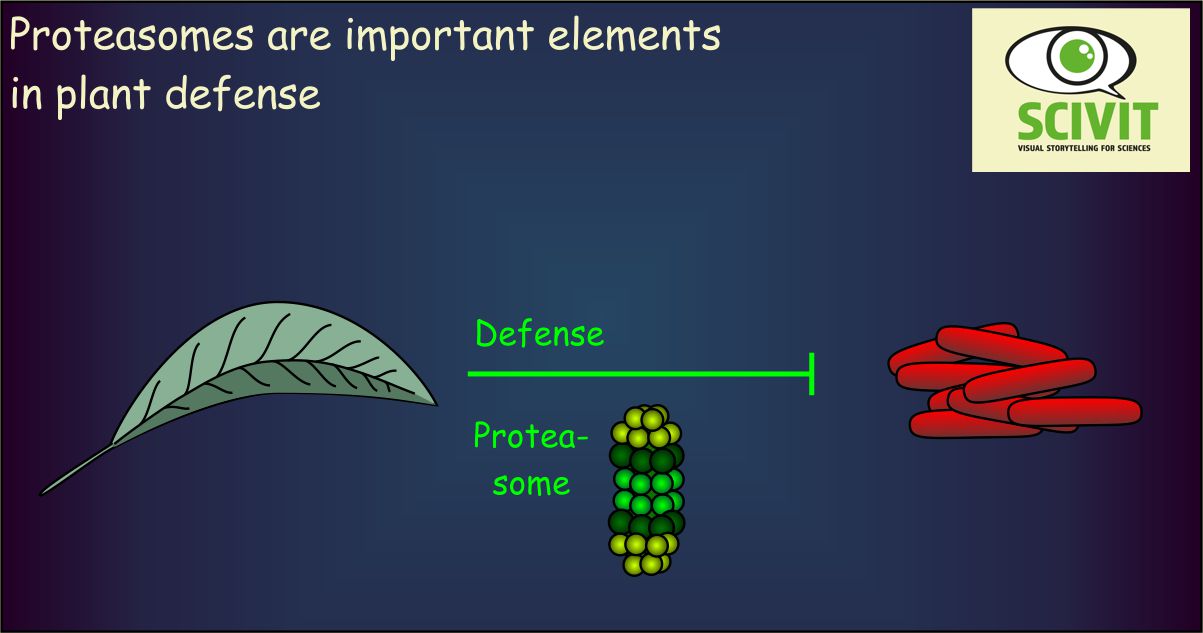
Proteasomes are important elements in plant defense
Proteasomes and plant defense
Plants are challenged by a large variety of pathogens and therefore have acquired a complex, multi-layered system of defense. Üstün and colleagues have discovered a new, unexpected component of this defense system: the proteasome. The primary function of these large protein complexes is the degradation of damaged or unnecessary proteins. Now it turns out that in plants they also help to remove dangerous intruders.
Evidence for a defensive role of proteasomes
The evidence presented by Üstün et al. is based primarily on the study of mutants defective in parts of the proteasome complex. Such mutants are compromised in a very basic layer of defense, which addresses all intruders with certain molecular characteristics (pathogen associated molecular patterns). At the same time also an inducible layer of the plant defense system (systemic acquired resistance, SAR) is affected in these mutants. These findings are supported by the observation that the proteasome is a target for inactivation by plant pathogens. Inactivation of part of the plant defense system is a very common strategy of pathogens. The fact that they address the proteasome gives strong support to a prominent role of this cellular waste paper basket in plant defense.
Neueste Kommentare